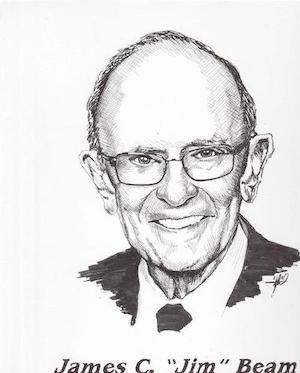Jim Beam column: Legislators approve tax reform
Published 6:43 am Saturday, November 23, 2024
Members of the Louisiana Legislature ended their special session Friday after moving quickly to overwhelmingly approve eight tax bills that make up Republican Gov. Jeff Landry’s proposed tax reform plan.
The Senate started the day by rolling a 3% flat individual income bill into House Bill 10 in order to tie it to a 1% sales tax increase that would raise the state sales tax to 5%. The increase would continue for five years from Jan. 1, 2025, to Dec. 31, 2029, and the tax would total 4.75% beginning Jan. 1, 2030.
Louisiana already has the highest combined state and local sales tax in the country and this change would raise it to 10.06%.
A fiscal note said the tax would raise $875 million by fiscal year 2026. Those funds would be needed to help produce $1.3 million in individual income tax revenues that would be lost because of the flat tax.
Sen. Gerald Boudreaux, D-Lafayette, said he would have preferred to keep those bills separate, but this combination is just a first step. Lawmakers hope to eventually abolish the income tax.
The Advocate reported that Senate President Cameron Henry, R-Metairie, said the two bills were being combined to make it easier to get the two-thirds vote needed to pass tax measures, since legislators who want the tax cut would have to vote to pay for it.
HB 2 established a 5.5% flat corporate income tax, which is higher than Landry wanted. However, the effort to raise new revenues with sales taxes on 41 state services not currently being taxed died on the calendar. The current 7.5% corporate income tax is the highest in the country.
HB 3 eliminates the corporate franchise tax that most states don’t levy because it’s a tax on earnings that discourages investment.
HB 5 is a permanent $2,000 pay increase for teachers and a $1,000 permanent increase for school support workers. Three educational trust funds that are in HB 7 would pay off some debt of the Teachers Retirement System of Louisiana. That would save funds that school districts have been paying towards that debt, and those savings would finance the two education raises.
HB 7 is a proposed state constitutional amendment that reforms Article VII, the finance section of the state constitution. It takes many items out of the constitution and contains those three education trust funds needed for the education raises.
The homestead property tax exemption and the state sales tax exemption for food prepared for home consumption, residential utilities and prescription drugs would stay in the constitution.
HB 8 is a state sales and use tax on certain digital products and services. It would bring in $37 million annually beginning in fiscal year 2025-26.
HB 11 deals with special assessments and gives local governments an opportunity to opt out of the unpopular inventory tax. If they opt out, they would receive a one-time payment totaling three years of those revenues but not to exceed $15 million.
HB 12 deals with special state trust funds. It takes $280 million out of the Transportation Trust Fund for two years to use in the state general fund. However, it requires that $40 million be deposited in the Megaprojects Leverage Fund for the new Interstate 10 bridge over the Calcasieu River at Lake Charles that is already being prepared for construction.
Landry thought his original tax reform plan would move Louisiana from 40th to eighth on the Tax Foundation’s State Business Tax Climate Index. However, the revisions enacted Friday would rank the state among the top 20.
The governor had planned to end tax credits for producing films in Louisiana and for renovation of historic buildings. The Senate instead reduced how much the state can spend in those two areas.
The Advocate said Landry and Richard Nelson, his secretary of the state Department of Revenue, wanted to broaden the tax base by ending tax breaks and reducing tax rates. However, ending tax breaks proved difficult.
HB 7, the proposed state constitutional amendment and other proposed amendments will be decided by voters at a statewide election on March 29, 2025. Some of the proposed tax changes won’t take effect if voters reject HB 7.
HB 7 is a complex amendment that will need extreme clarification for voters. Some previous complicated tax reform efforts didn’t make it.
Jim Beam, the retired editor of the American Press, has covered people and politics for more than six decades. Contact him at 337-515-8871 or jim.beam.press@gmail.com.






